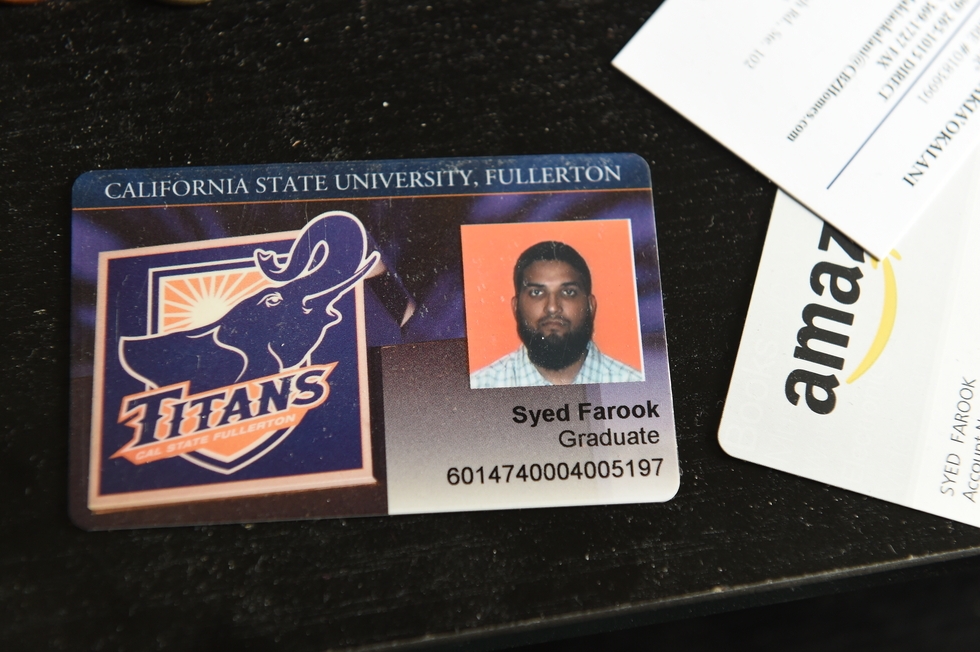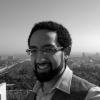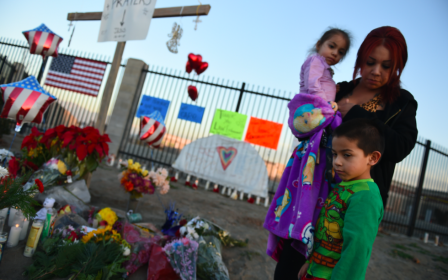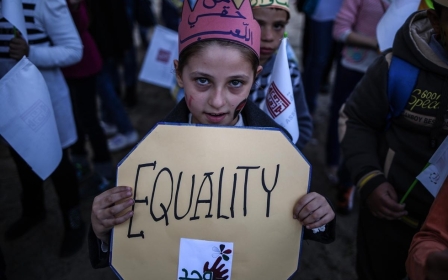How the US media is promoting Islamophobia

How much time the news dedicates to covering radicalisation and terrorism may be the most significant overlooked factor contributing to the rise of Islamophobia in the US today.
The recent senseless shooting at the Inland Regional Centre in San Bernardino, California, is a case in point. Aside from the identities of the assailants and their victims, as well as the types of weapons they used and hid in their place of residence, we simply do not have any other relevant facts to report on.
While this may be an expected part of how a proper police investigation unfolds in its early stages, with facts accumulating over time to construct a clearer picture of motives, plans and the greater context of why and how this attack took place, such logic does not work for mainstream news media outlets that survive on ratings.
While a police investigation waits for facts to construct the narrative, mainstream news media channels construct multiple narratives from speculations based on a dearth of facts. One pundit after another coming off from a conveyer belt of various think tanks and institutions come on screen to share their conjectured thoughts, mostly devoid of evidence, just to fill airtime and give viewers the illusion of progress in the unfolding of the story.
Islamophobia is often discussed in the context of the discourse of how Muslims and Islam are presented in the media. Its focus is on deconstructing the headlines, the editorials, and the bigoted insinuations being made by broadcasters and pundits.
However, there is the simple matter of how much time the news dedicates to this topic. If the same amount of time spent on terrorism was spent covering how much teachers are underpaid, climate change, healthcare system problems, economic disparities, gun control or literally any of the more pressing issues Americans face, the US would be a different country than it is today, and it would be for the better.
I spent an hour this Saturday afternoon with a stopwatch to keep track of how often terrorism and radicalisation were the main topic on CNN. At the end of the hour I had a total time of 19 minutes and 47 seconds. The remaining time was split evenly between commercials and other news content.
The facts we actually know about the San Bernardino shooting could be summarised in five bullet points and related in a matter of 30-45 seconds. In other words, much of the news coverage on CNN was largely vacuous speculations about terrorism and radicalisation devoid of any facts.
Given the time CNN dedicates to covering violence committed by Muslims, it is useful to take note of some statistics to see the discrepancies. According to the FBI Database, of all terrorist attacks occurring on US soil during the period from 1985 to 2005, attacks by Islamic extremists represent only six percent of the total. Of the approximately 351 mass shootings so far in the US this year, only two, yes two, were committed by Muslims, which represents a whopping 0.57 percent of all mass shootings in gun-loving America.
When Americans were asked to guess the Muslim population in the US, they thought it formed 15 percent of the total, or over 47 million Muslims. In reality, the Muslim population in the US is an estimated 2.6 million, which is about 0.8 percent of the total population. Interestingly, a national survey of US physicians in 2005 revealed that Muslims represent 2.5 percent of a profession dedicated to saving people’s lives.
Finally, Gallup polls show that significantly more than any other group in the US, Muslim Americans are the staunchest in opposition to attacks against civilians, whoever - military or individuals - may carry out such attacks.
Regardless of the statistics and arguments, the fact that a mainstream news outlet such as CNN would dedicate half of its airtime in an hour of news coverage to discussing Muslim violence and radicalisation places Muslims in the position of the husband having to answer the proverbial loaded question of whether he has stopped beating his wife.
This is not an issue of balancing the platforms and allowing more Muslims to speak for themselves. The very structure of the discourse is perilous. It gives the impression to viewers, irrespective of whether it is balanced or not, that Muslim violence in America is unique, inevitable and a growing threat that requires half of everyone’s total attention.
This has taken a more dangerous turn with the San Bernardino shooting, because the assailants were not on any terror watch list and are presented in the media as the most generic unsuspecting Muslim neighbours one can have. One should shutter at the thought of what this type of coverage could lead to for average American Muslims if it is not put in check.
The primary culprit in the rise of Islamophobia in the US is the media, and it starts with the insane amount of time dedicated to covering the unfortunate, yet isolated events of violence perpetuated by Muslims. To produce content, they fill their airtime with speculation devoid from facts. To make it palatable for the viewer, they grant this empty speculation an air of authority by playing musical chairs with pundits having fancy academic and job titles from think tanks and institutions.
In pursuit of their ratings, mainstream media outlets such as CNN are directly contributing to an atmosphere of fear disguised as keeping their viewers informed. In turn, they make the American Muslim community automatically guilty in the eyes of their fellow citizens of a crime they neither committed nor condoned.
- Mohamed Ghilan is a classically trained student in Islamic law and theology and is currently a neuroscience PhD candidate at the University of Victoria, Canada.
The views expressed in this article belong to the author and do not necessarily reflect the editorial policy of Middle East Eye.
Photo: The California State University Fullerton student identification of San Bernardino mass murder suspect Syed Farook sits on a desk inside Farook's home, 4 December, 2015 in Redlands, California (AFP).
Middle East Eye propose une couverture et une analyse indépendantes et incomparables du Moyen-Orient, de l’Afrique du Nord et d’autres régions du monde. Pour en savoir plus sur la reprise de ce contenu et les frais qui s’appliquent, veuillez remplir ce formulaire [en anglais]. Pour en savoir plus sur MEE, cliquez ici [en anglais].





